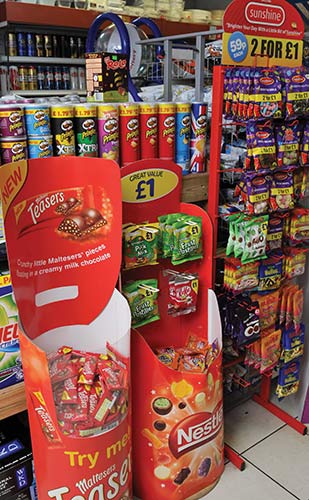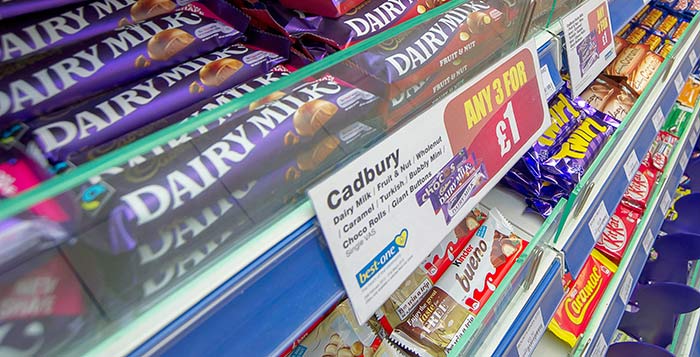‘We will push for a law if we don’t get support,’ warns health group
Promoting products such snacks, soft drinks and confectionery could soon become a thing of the past, according to leaked details from a Department of Health (DoH) meeting.
[pull_quote_right]The move could force stores to remove countertop units and obliterate impulse purchasing[/pull_quote_right]
Susan Jebb, who chairs the food network of the DoH’s Public Health Responsibility Deal, warned at a meeting earlier this year that she will “go to ministers” if the industry is not quick to reduce the promotion of “products that people don’t need”.
She warned that if suppliers and retailers didn’t take voluntary action, there would be mandatory action on what she described as “an area that lends itself to legislation”.
The move could force convenience stores to remove countertop units and obliterate the opportunity for impulse purchasing in smaller stores, costing retailers thousands of pounds.
Oxford University professor Jebb is understood to be frustrated that, despite three years of group meetings, there has been no consistent progress towards removing promotions in shops, while reductions on salt and sugar have moved forward.
Jebb wrote to the industry in June last year, highlighting ways in which food promotion could be reduced by focusing on in-store marketing.
In the official minutes of the high level steering group, which includes representatives from Tesco, PepsiCo and the British Retail Consortium, Jebb is quoted as saying that a lack of buy-in from business was “disappointing”. Despite praising moves from Tesco and Lidl to remove confectionery from the till-point, she is keen for more action.
It is understood, though, that she believes the window of opportunity for companies to take voluntary action is narrowing month by month.
Jebb also recently published research on whether aisle-end promos in supermarkets increased alcohol sales. She concluded: “Restrictions on the use of aisle ends for alcohol and other less healthy products might be a promising option to encourage healthier in-store purchases, without affecting availability or cost of products.”
The Department of Health’s Public Health Responsibility Deal was founded in 2011 to encourage retailers, suppliers and interested bodies to pledge to improve the nation’s public health.
*ADDITION, MONDAY August 11, 2014*
Responding to the claims over this weekend, Jebb told Retail Express that there would be “no point” continuing to discuss food promotions or marketing as part of the Responsibility Deal if voluntary progress doesn’t happen.
“My job as the Chair of the Food Network, is to get the best I can for public health out of the RD, which is by definition a voluntary scheme,” she said.
“What I have said is that there is no point in continuing to discuss the issue of food promotions/marketing within the RD if there is no progress on this voluntary basis. Jane Ellison, the Minister for Public Health, attends the RD meetings and it is for her and the Secretary of State for Health to decide whether or not they wish to take action beyond the RD.”
Jebb said that there is pressure on the industry to prove that it can achieve change.
“At present the government has indicated it wishes to look for voluntary action by industry to improve food and drink habits, but in the run up to the election I think there will be mounting pressure for all parties to be clear on what action they intend to take in the next parliament,” she said.
“Without some clear progress it will be very hard for industry to argue that change can be achieved through voluntary means.”
Sorry, there are no polls available at the moment.





Comments
This article doesn't have any comments yet, be the first!